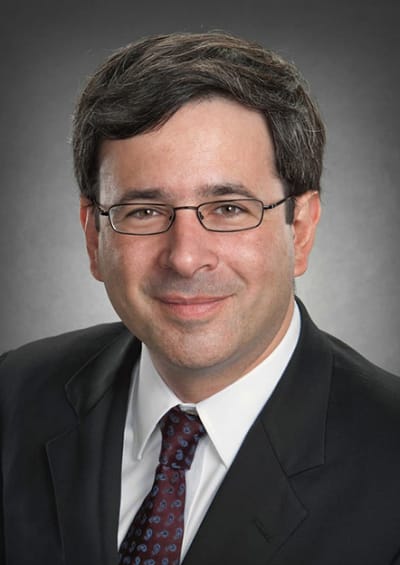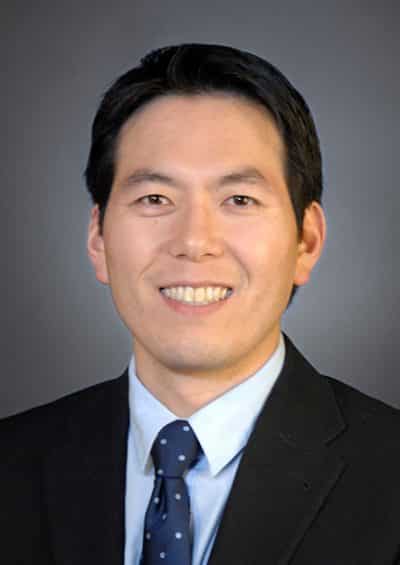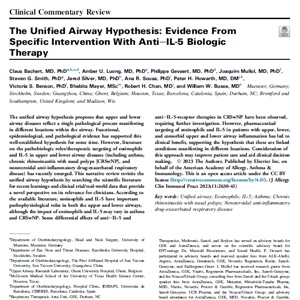Aspirin Exacerbated Respiratory Disease
Aspirin Exacerbated Respiratory Disease
Get relief for chronic sinus inflammation from UT Physicians
Aspirin exacerbated respiratory disease (AERD) is a chronic inflammatory condition affecting the nose and lungs. It consists of asthma, sinus disease with recurrent nasal polyps, and sensitivity to aspirin and other nonsteroidal anti-inflammatory drugs (NSAIDs) that, when taken, lead to respiratory reactions. UT Physicians is a leader in treating AERD, offering the latest treatment options, including clinical trials.
Take Our AERD Assessment
You may be a strong candidate for AERD treatment.
You may not qualify for AERD treatment. Contact us if you have any questions.
Patients with this condition have a baseline level of inflammation giving rise to sinus and nasal symptoms as well as asthma. Some may have asthma attacks or a rash when they take aspirin, anti-inflammatory medications (ibuprofen), or even acetaminophen at high doses.
- Antibiotic or anti-inflammatory steroids — Personalized topical therapy
- Biologics — Targeted injection therapy
- Sinus surgery — Removal of nasal polyps and widening of blocked sinus cavities.
- Aspirin desensitization
Patient’s Perspective
Treating Nasal Polyps due to AERD with Revision Sinus Surgery and Aspirin Desensitization
For two decades, Jeff Cobb saw various ENTs and tried a variety of oral and nasal medications for chronic rhinosinusitis, without sustained relief. In the process, he was diagnosed with Samter’s Triad, a chronic condition defined by asthma, sinus inflammation with difficult-to-treat nasal and sinus polyps, and aspirin sensitivity. The condition is also known as aspirin triad or aspirin-exacerbated respiratory disease (AERD). When Cobb took aspirin, his sinus inflammation worsened. Cobb discovered Martin J. Citardi, MD, while reading an article in another physician’s office in the Texas Medical Center.
“I walked Dr. Citardi through my history of sinus problems and at the end of our conversation, he recommended a two-part approach – undergo full sinus surgery to get everything cleaned up, then see an allergist for aspirin desensitization,” Cobb says. “The surgery went well, and my recovery was fast.”
Read more about Jeff’s story: see the ORL Notes post.
Unified Airway
You will have immediate access to multidisciplinary management expertise, innovative therapies, and technology. Our team of experts, including pulmonologists, immunologists, and rhinologists, will ensure you are provided the best care and treatments for your unique situation.
UTHealth Houston physician Amber Luong, MD, PhD, contributed to a peer-reviewed article on AERD. This article, published in The Journal of Allergy and Clinical Immunology, highlighted how biologics help manage upper and lower AERD diseases.
For more info, please see the publication abstract.
Actively recruiting clinical trials for AERD
Clinical trials are actively available for those experiencing chronic rhinosinusitis with nasal polyps. This trial will study the mechanisms by which the biologic medication improves nasal polyp growth and AERD. Learn more about AERD clinical trials.
ENT
UT Physicians Otorhinolaryngology – Texas Medical Center
Houston, TX 77030-1539
(713) 486-5000


Martin J. Citardi, MD
Martin J. Citardi, MD, an internationally recognized rhinologist, currently serves as Professor and Chair of the Department. Dr. Citardi received his doctor of medicine degree from The Johns Hopkins University School of Medicine. He completed his residency training at Yale University and then pursued a rhinology fellowship at the Georgia Rhinology & Sinus Center. Dr. Citardi is certified by the American Board of Otorhinolaryngology, and he is a fellow of the American Academy of Otolaryngology, the American College of Surgeons and the American Rhinologic Society.
Martin J. Citardi, MD, an internationally recognized rhinologist, currently serves as Professor and Chair of the Department. Dr. Citardi received his doctor of medicine degree from The Johns Hopkins University School of Medicine. He completed his residency training at Yale University and then pursued a rhinology fellowship at the Georgia Rhinology & Sinus Center. Dr. Citardi is certified by the American Board of Otorhinolaryngology, and he is a fellow of the American Academy of Otolaryngology, the American College of Surgeons and the American Rhinologic Society.


Amber Luong, MD
Amber Luong, MD, PhD, serves as an Associate Professor and Director of Research in the Department of Otorhinolaryngology. She obtained her MD/PhD at the University of Texas Southwestern Medical Center at Dallas through the NIH-sponsored Medical Scientist Training Program. Dr. Luong completed her residency training at UT Southwestern and rhinology fellowship training at the Cleveland Clinic.
Amber Luong, MD, PhD, serves as an Associate Professor and Director of Research in the Department of Otorhinolaryngology. She obtained her MD/PhD at the University of Texas Southwestern Medical Center at Dallas through the NIH-sponsored Medical Scientist Training Program. Dr. Luong completed her residency training at UT Southwestern and rhinology fellowship training at the Cleveland Clinic.


William Yao, MD
William Yao, MD, received his medical degree from the University of Colorado Health Science Center School of Medicine and then pursued otorhinolaryngology (ears, nose and throat) residency at Baylor College of Medicine. He has also completed a rhinology fellowship at the Massachusetts Eye & Ear Infirmary. Dr. Yao’s clinical interests include nasal obstruction and other conditions of the nose and sinuses.
William Yao, MD, received his medical degree from the University of Colorado Health Science Center School of Medicine and then pursued otorhinolaryngology (ears, nose and throat) residency at Baylor College of Medicine. He has also completed a rhinology fellowship at the Massachusetts Eye & Ear Infirmary. Dr. Yao’s clinical interests include nasal obstruction and other conditions of the nose and sinuses.
Allergy and Immunology
UT Physicians Internal Medicine – Texas Medical Center
Houston, TX 77030-5206
(832) 325-7100
Pulmonary
UT Physicians Internal Medicine – Texas Medical Center
Houston, TX 77030-5206
(832) 325-7100
UTHealth Houston Professional Building
6410 Fannin Street
Houston, Texas 77030
QUICK LINKS
© Copyright 2024 – The University of Texas Health Science Center at Houston (UTHealth Houston)
Find a Doctor/Provider
Patient Info
Schedule an Appointment
New Patients
For new patients, welcome to UT Physicians and your first visit.
Existing Patients
Thank you for choosing UT Physicians again for your care. You can schedule an appointment in the MyUTHealth patient portal.






